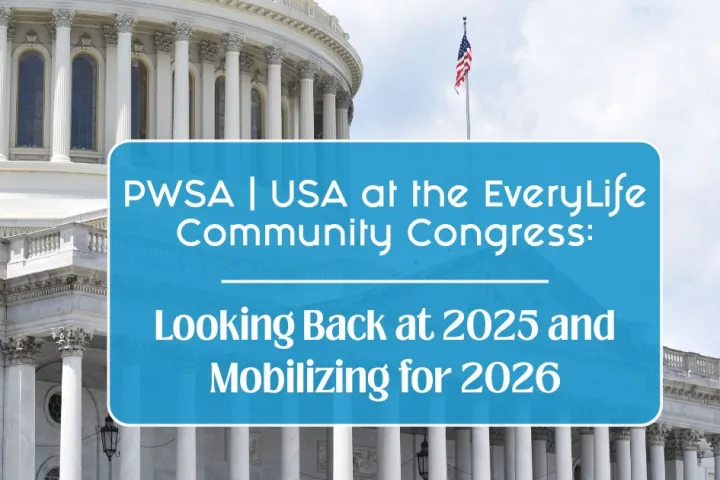The Iowa Medicaid Drug Utilization Review (DUR) Commission will be meeting at 9:30 am CT on November 5, 2025.
Here’s how you can help:
The Iowa Medicaid DUR Commission needs to hear directly from you – the parents, caregivers, and family members who understand the real-life impact of hyperphagia (excessive hunger) in PWS. One of the medications under review is VYKAT XR, the first-ever hyperphagia treatment specifically for individuals living with PWS that was approved by the FDA in March 2025.
We’re asking families to submit written testimony or public comment if you attend the meeting virtually to help decision-makers understand why access to this treatment is so urgently needed.
Submission Details:
- Max TWO Pages
- May include photo
- Medicare/Medicaid/Medicaid Waiver recipients are favored
Meeting Details:
- When: Thursday, November 5th
- Time: 9:30a – 1:30p CT (Virtual)
- Meeting Link: Via Teams accessed within Agenda
- DURB Agenda: Agenda
If you are interested in providing written or verbal comments, please complete the conflict of interest disclosure.
Verbal comments must pre-register and submit a completed conflict of interest disclosure. Five (5) minute maximum limit. Written Comments must also include a completed conflict of interest disclosure. More details regarding this meeting can be found on the meeting home page: Meeting information
Writing Guide:
- My name is:
- I live in:
- My child living with PWS is ___ old and receives Medicaid in the state of IA.
- Thank the members of the committee for the work they do.
- How do the unmet needs of PWS affect your family?
- If your son/daughter IS taking vykat XR, explain how access to the drug has changed your lives?
- If your son/daughter IS NOT taking vykat XR, how will having access to an approved drug to treat hyperphagia in PWS change their lives and what their future looks like?
- What is your hope for the approval of drugs to treat hyperphagia in PWS.
Review:
If you’d like help drafting your story or want someone to review it with you, PWSA | USA is here to support you. Reach out to a fellow parent or contact us directly (info@pwsausa.org or 941.312.0400).Share this!





 Perry A. Zirkel has written more than 1,500 publications on various aspects of school law, with an emphasis on legal issues in special education. He writes a regular column for NAESP’s Principal magazine and NASP’s Communiqué newsletter, and he did so previously for Phi Delta Kappan and Teaching Exceptional Children.
Perry A. Zirkel has written more than 1,500 publications on various aspects of school law, with an emphasis on legal issues in special education. He writes a regular column for NAESP’s Principal magazine and NASP’s Communiqué newsletter, and he did so previously for Phi Delta Kappan and Teaching Exceptional Children. Jennifer Bolander has been serving as a Special Education Specialist for PWSA (USA) since October of 2015. She is a graduate of John Carroll University and lives in Ohio with her husband Brad and daughters Kate (17), and Sophia (13) who was born with PWS.
Jennifer Bolander has been serving as a Special Education Specialist for PWSA (USA) since October of 2015. She is a graduate of John Carroll University and lives in Ohio with her husband Brad and daughters Kate (17), and Sophia (13) who was born with PWS. Dr. Amy McTighe is the PWS Program Manager and Inpatient Teacher at the Center for Prader-Willi Syndrome at the Children’s Institute of Pittsburgh. She graduated from Duquesne University receiving her Bachelor’s and Master’s degree in Education with a focus on elementary education, special education, and language arts.
Dr. Amy McTighe is the PWS Program Manager and Inpatient Teacher at the Center for Prader-Willi Syndrome at the Children’s Institute of Pittsburgh. She graduated from Duquesne University receiving her Bachelor’s and Master’s degree in Education with a focus on elementary education, special education, and language arts. Evan has worked with the Prader-Willi Syndrome Association (USA) since 2007 primarily as a Crisis Intervention and Family Support Counselor. Evans works with parents and schools to foster strong collaborative relationships and appropriate educational environments for students with PWS.
Evan has worked with the Prader-Willi Syndrome Association (USA) since 2007 primarily as a Crisis Intervention and Family Support Counselor. Evans works with parents and schools to foster strong collaborative relationships and appropriate educational environments for students with PWS. Staci Zimmerman works for Prader-Willi Syndrome Association of Colorado as an Individualized Education Program (IEP) consultant. Staci collaborates with the PWS multi-disciplinary clinic at the Children’s Hospital in Denver supporting families and school districts around the United States with their child’s Individual Educational Plan.
Staci Zimmerman works for Prader-Willi Syndrome Association of Colorado as an Individualized Education Program (IEP) consultant. Staci collaborates with the PWS multi-disciplinary clinic at the Children’s Hospital in Denver supporting families and school districts around the United States with their child’s Individual Educational Plan. Founded in 2001, SDLC is a non-profit legal services organization dedicated to protecting and advancing the legal rights of people with disabilities throughout the South. It partners with the Southern Poverty Law Center, Protection and Advocacy (P&A) programs, Legal Services Corporations (LSC) and disability organizations on major, systemic disability rights issues involving the Individuals with Disabilities Education Act (IDEA), Americans with Disabilities Act (ADA), and the federal Medicaid Act. Recently in November 2014, Jim retired.
Founded in 2001, SDLC is a non-profit legal services organization dedicated to protecting and advancing the legal rights of people with disabilities throughout the South. It partners with the Southern Poverty Law Center, Protection and Advocacy (P&A) programs, Legal Services Corporations (LSC) and disability organizations on major, systemic disability rights issues involving the Individuals with Disabilities Education Act (IDEA), Americans with Disabilities Act (ADA), and the federal Medicaid Act. Recently in November 2014, Jim retired.